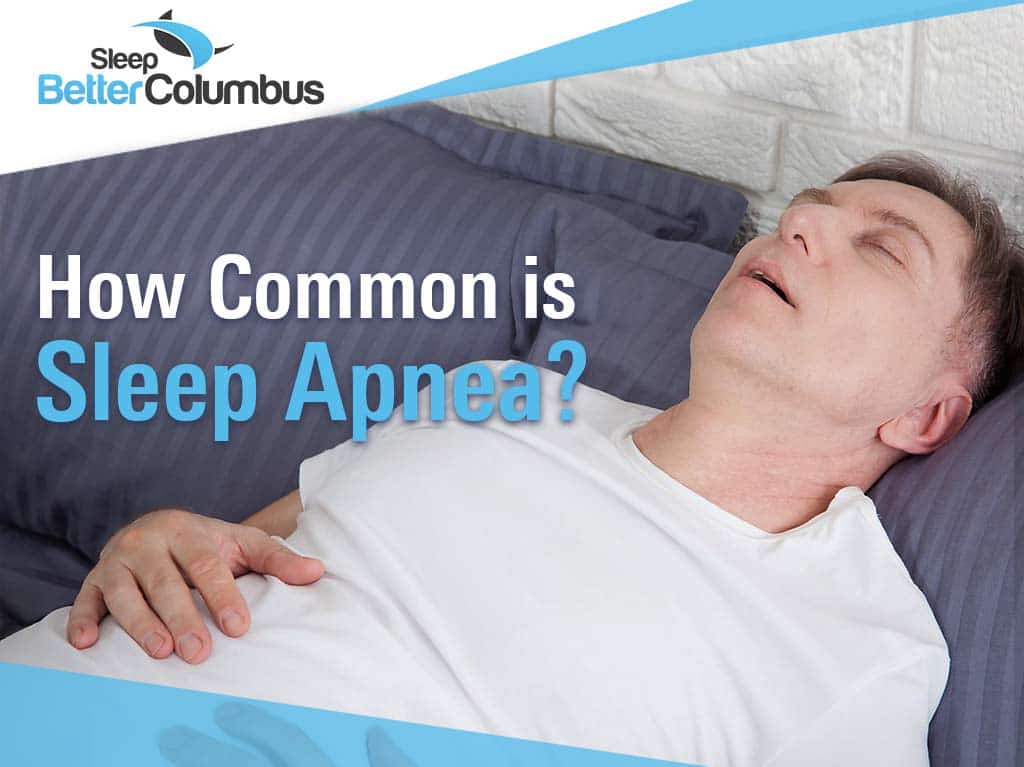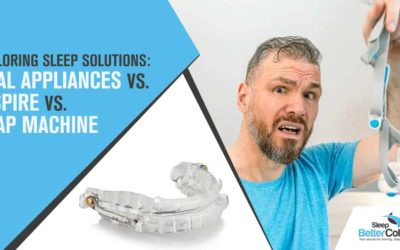Having trouble sleeping? You may ask yourself what is wrong. Why is it that I can’t sleep through the night? If you find yourself feeling even more tired after you wake up from your rest you might be suffering from a chronic disorder call sleep apnea. How common is sleep apnea anyway?
Sleep apnea is so common most people have it and don’t even realize it. This is very dangerous because untreated sleep disorders can lead to an infinite amount of other health concerns. Some we will go over a bit later. In this article, our goal is to explain the necessities you need to know about sleep apnea. How you can recognize symptoms in yourself and others. And find the help you need in order to receive testing and treatment.
Let’s get started.
What Is Sleep Apnea?
A big mistake you can make is ignoring that you are tired throughout the day or that you snore. Sleep apnea is a chronic medical condition that prevents you from breathing during sleep. It can be caused by a blockage in the airway because of relaxed muscles in the throat. Also, a more severe case is when breathing is prevented because of a lack of communication from the brain and the central nervous system to your respiratory system to breathe.
There is one more kind of sleep apnea out of the 3 types and that that is mixed sleep apnea. This is when you suffer from a combination of Central Sleep Apnea and Obstructive sleep apnea. Mixed Sleep Apnea is the most severe of the types. Obstructive sleep apnea is the most common. And unfortunately the condition you may suffer from.
The Commonality of Sleep Apnea
Sleep apnea is made up of 3 types. That includes OSA (Obstructive sleep apnea), CSA (Central sleep apnea), and Mixed (Also known as Complex sleep apnea syndrome). So how common is sleep apnea?
In the U.S between 50 million and 70 million people have some kind of sleeping disorder. Obstructive sleep apnea is the most common. To be more specific between 3 and 7% of men have OSA while it’s a bit lower for women coming in between 2-5%. Sadly however this number for women is rising. As OSA is more common in middle-aged to older men, women are beginning to be recognized as suffering from this disorder.
To put this into perspective even further, there are 326 million people living in the United States. Out of that number, one out of every twelve suffers from OSA. That is 22 million people. And only a small percentage actually gets treatment, leaving the rest to harbor disease because of worsening sleep apnea symptoms without treatment (75 – 85% go undiagnosed).
More Statistics
Out of the U.S population, 10% have mild obstructive sleep apnea, around 3 ½ % have moderate sleep apnea, and around 4% suffers from severe OSA, also know as hypopnea which is the medical term for excessive shallow breathing, and lower than normal rate of breathing over a one minute period. Essentially you are failing to bring in enough oxygen while you rest causing abnormalities in your health.
Which brings us to the next area of discussion. How can you tell if you may be suffering from sleep apnea? There are symptoms that are most prevalent when involving sleep apnea.
Most Common Sleep Apnea Symptoms
Obstructive and Central sleep apnea have symptoms that are red flags that you need further testing in the form of a sleep study. These symptoms can be present both for OSA or CSA but your doctor will refer you for a sleep study either way.
- Excessive day time drowsiness
- Morning headaches after waking up
- Waking up with large gasp for air
- Insomnia (you don’t sleep for long, maybe a few hours a night)
- Loud snoring (waking those in close proximity because of the noise)
- Poor attention span and lack of focus
- Uncomfortable dry mouth when you wake up
As you can see these are easy to spot and to notice in yourself. Now that you are aware of these common symptoms you can begin paying close attention to how you feel. These are but a small amount of symptoms so if you notice things like irritability and always needing that extra cup of coffee you might be suffering from sleep apnea. You should be able to make it through the day energetic and focused.
Some Common Risk Factors of Sleep Apnea
- Family history
- Being a male
- Middle to older aged
- Obesity
- Nasal blockages or airway abnormalities
- Smoking
- Neurological disorders
- Drug use (some narcotics will suppress the nervous system)
There are other risk factors but these are present in the common area of sleep apnea risk factors.
Treatment Options
When you are diagnosed with sleep apnea, you can there are a few ways to receive treatment. If you have central sleep apnea there are limitations to your options, since you will need a device to keep your airway open because of a neurological disconnection. But with OSA you can use a CPAP or an oral appliance offered by the office of Sleep Better Columbus.
This oral appliance is similar to a mouthpiece, that pulls your jaw forward. This eliminates the obstruction as you sleep creating a safe breathing canal that supports a normal exchange of oxygen and carbon dioxide.
In Conclusion
As you can see, sleep apnea is very common. After all, with over 80% of Americans not being diagnosed it’s more common than ever. Failing to get treatment will lead to health problems like stroke, type 2 diabetes, high blood pressure, and more. Being referred to a sleep study doctor such as Dr. Levy from the office of Better Sleep Columbus can improve your quality of life drastically.
The one on one attention and sleep study technology will easily help diagnose your kind of sleep apnea and then you will be given the best way to treat it.




